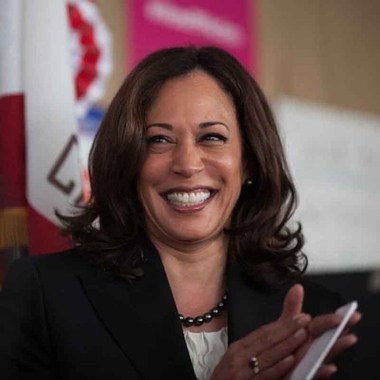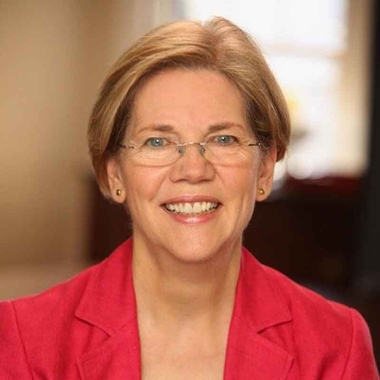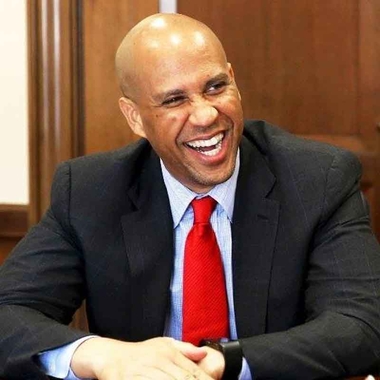Kamala Harris says race, gender issues 'about American identity' as 2020 hopefuls pitch progressives

California's Sen. Kamala Harris urged Democrats on Friday to embrace issues of race, gender, sexual orientation and more -- lambasting critics of "identity politics" who she said had weaponized the phrase "to try to shut us up."
"It's a pejorative," Harris told progressives gathered here for the annual Netroots Nation conference. "That phrase is used to divide and used to distract. Its purpose is to minimize and marginalize issues that impact all of us."
She pointed to civil rights, women's reproductive rights, criminal justice and immigrant rights, saying "we won't be silent" about those issues.
"These are the very things that will define our identity as Americans," Harris said. "This is about American identity."
The remarks -- aimed at not just Republicans, but also moderate Democrats who have sought to steer the party toward the middle after President Donald Trump's 2016 victory -- thrust Harris into an internal battle that has animated many of this year's House primaries and could be at the heart of the Democratic 2020 presidential race. And as Harris, a former California attorney general and a freshman senator who was elected in 2016, weighs a run for the White House herself, her comments preview what could be a key part of her pitch to the party's electorate.
Related: 2018 midterms: An early heat for 2020 Democrats?
Harris said that for too long, Democrats have taken for granted black women in particular -- whose votes carried Democrat Doug Jones to victory over Roy Moore in Alabama's December 2017 special election for the Senate.
"The truth is that those who helped build the Democratic Party and have been the backbone of the Democratic Party have not always been given equal voice in the Democratic Party, and we need to deal with that," she said.
Harris added that "the truth is, we shouldn't just be thanking women of color for electing progressive leaders. In 2018, we should be electing women of color as those leaders."
Harris also pointed to Russia's intervention in the 2016 presidential election, saying that "they attacked us demographically and geographically" in order to exploit Americans' fears and prejudices.
"The Russians know that racism and other forms of hate have always been Americans' Achilles' heel, and we need to deal with that weakness."
Her remarks came on a day that other 2020 presidential prospects, including Massachusetts' Sen. Elizabeth Warren and New Jersey's Sen. Cory Booker, and rising progressive stars like New York gubernatorial hopeful Cynthia Nixon spoke at a conference attended by hundreds of Democratic activists.
Netroots Nation is an important -- some sometimes perilous -- stop for Democratic presidential aspirants who are courting the party's progressive base. In 2015, former Maryland Gov. Martin O'Malley and Vermont's Sen. Bernie Sanders were shouted down by Black Lives Matter activists.
Still, Democrats flocked here this year.
Montana Gov. Steve Bullock was set to participate in a panel on net neutrality Saturday morning. Ohio Rep. Tim Ryan and former Housing and Urban Development Secretary Julián Castro were set to give speeches during a closing session.
On Friday, Washington Gov. Jay Inslee spoke on a panel about Democratic governors' efforts to lead the "resistance" to Trump. And Thursday, billionaire Democratic donor and activist Tom Steyer delivered a speech calling for Trump's impeachment.
Other progressive stars, including Alexandria Ocasio-Cortez, who ousted New York Rep. Joe Crowley in a primary earlier this summer, and Kevin de León, the state Senate leader challenging Sen. Dianne Feinstein in California this fall, were also on hand with prominent speaking roles.
Warren slams 'politics of division'

Warren was the candidate who's been least coy about her presidential ambitions. Before her speech, her staff put signs on attendees' chairs with the word "PERSIST," a reference to Senate Majority Leader Mitch McConnell admonishing Warren in early 2017 by saying, "Nevertheless, she persisted."
And afterward, Warren, who has been diligent for more than a year in reaching out to black leaders in hopes of avoiding the weaknesses that proved fatal to Sanders' 2016 presidential bid, had scheduled a town hall with Louisiana's Rep. Cedric Richmond, the chairman of the Congressional Black Caucus.
In her Netroots Nation speech, Warren accused Trump of using identity to divide Americans -- and deflect attention from what she cast as the real enemy: the rich and powerful.
"Trump and his pals tell working people a story about what's gone wrong in their lives," Warren said. That story, she said, is that "the problem is other working people. People who are black or brown. People who were born somewhere else. People who don't worship the same, dress the same, talk the same."
"It comes in all sorts of flavors: racism, sexism, homophobia, xenophobia. It comes in all sorts of forms: nasty personal attacks. Trolling on Twitter. Winking at white supremacists. It all adds up to the same thing: the politics of division," Warren said.
Those politics of division, she said, "might be the one thing Donald Trump is really good at -- that and kissing up to two-bit dictators."
Warren made a veiled reference to a possible 2020 bid, telling the progressive activists that the fight against Trump and powerful interests is "uphill."
"But me? I'm going up that hill and I hope you are, too," she said.
Booker calls for rejecting 'normalcy of injustice'

Booker, whose remarks were initially intended as a Thursday evening keynote but were moved to Friday afternoon after bad weather delayed his flight out of Washington, delivered an impassioned plea for progressives to reject the "normalcy of injustice."
"We are at a time where injustice has grown to become normal in our country, and it is time for us to work together to get folk woke, to help people understand their power," he said. "American history is a perpetual screaming testimony to the achievement of the impossible."
He delivered a list of his legislative proposals, including legalizing marijuana and expunging past drug-related convictions, launching a federal jobs guarantee pilot program and more.
Booker's remarks were a clear departure from Harris' and Warren's, who urged more confrontational approaches. Before closing by reciting a Langston Hughes poem, Booker told the stories of three activists who inspired him, and said that "we should be aspiring for love."
"And fundamental to love is knowledge, is empathy, is compassion, is knowing another's struggle," he said. "If you love someone, you see their worth, you see their dignity. You know that your destiny is interwoven with them."
By Eric Bradner, CNN. The-CNN-Wire™ & © 2018 Cable News Network, Inc., a Time Warner Company. All rights reserved.
The Gayly – August 4, 2018 @ 7:45 a.m. CDT.





